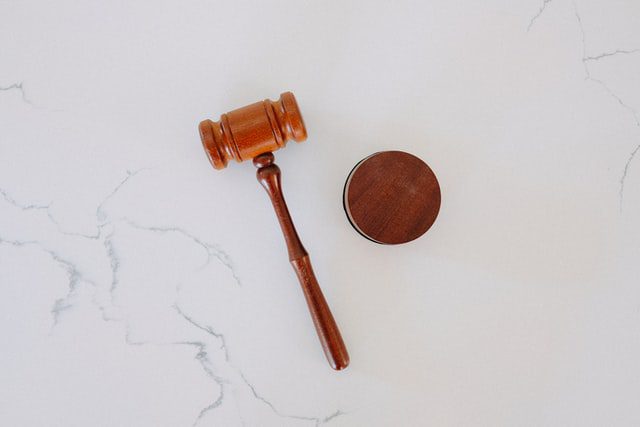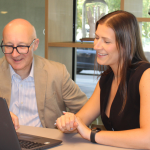Being a Registered Valuer is a fascinating and varied job; many of us get to see a range of properties and have the pleasure of travelling around our chosen area on a daily basis, meeting interesting people.
The aspect of our job that most people are familiar with is their mortgage valuation. When buying or re-mortgaging your house, the lender will instruct a valuer to provide a brief valuation for them to decide if the lending is supported in the event of the borrower defaulting. Many valuers like myself also do valuations for tax, purchase, compensation and business reasons. However, some of us also act as Expert Witness, which requires some different skills.
Firstly, we need to understand the reason an Expert is required. This is an appointment specifically in connection with Court or Arbitration proceedings and the valuer’s duty is to the Court, not to any of the parties. The most common appointment is to do with matrimonial (divorce proceedings) where property is owned. However, we also act in cases of business dispute/partnership dissolution, professional negligence claims (often against solicitors or surveyors) and neighbour conflicts.
The appointment may be as a Single Joint Expert (SJE) or simply as an Expert Witness. If appointed as an SJE, the valuer will provide a valuation for the Court and has no connection to either party. The SJE’s appointment has to be agreed by all parties to the proceedings. It is also possible for one of the parties to appoint their own Expert to provide valuation advice.
What is important is that whether the valuer is appointed as an SJE, or by one of the parties, their duty is the same and is only to the Court. A valuer appointed as Expert cannot take a position of advocacy and is not employed to represent a party. The valuer must believe that their report is truthful and has to sign to that effect.
The provision of an Expert report is covered by s35 of the Civil Procedure Rules (CPR) or, for family matters s25 of the Family Procedure Rules (FPR). The valuer must confirm that their report does indeed comply with the rules.
An Expert may not take a contingent fee, i.e. they cannot charge a different fee based on the outcome of proceedings.
Experts have to be wary of conflicts of interest when accepting their appointment. They have a duty to disclose any prior involvement with the parties. Identifying a conflict does not necessarily mean that a valuer may not act; it depends on the nature of any prior involvement. A valuer who’s firm acts as a managing agent on an estate, for example, could not act as an SJE for a matter relating to that estate. They may act as Expert for their client, but the risk is that evidence is perceived to have less value than that of a wholly independent Expert. They would also have to take great care not to fall into the territory of advocacy, remembering their duty to the Court.
As a fan of Silent Witness, I am amazed that each story seems to involve one of the forensic scientists (acting as Experts) being conflicted. Only recently has it actually been mentioned in the storyline, although the characters seemed to be able to carry on with their appointments. Surely, they have read CPR35? In real life, conflicts are taken much more seriously. Whilst I am sure most valuers acting as Expert would be able to act impartially, the problem is perception. If a conflict is not identified and/or declared the evidence of the valuer is potentially seen to be less reliable.
Whilst on conflict, I am aware that if one of the parties does not agree with the Expert’s valuation they may seek to discredit the Expert. Therefore, it is vital that the Expert does not show any bias and has good experience in the area they are reporting on. It is not acceptable to act as a generalist valuer. As regards bias, it may be that the Expert often acts for landlords rather than tenants in their ordinary course of work; if they are prone to writing/posting content which shows a biased position this could be held against them in Court proceedings.
In terms of the report, there are various protocols that a valuer acting as Expert has to observe. It is convention that every paragraph is numbered for ease of reference by those reading it. The report must be written in the first person (it is my report as an Expert, not my firm’s report). The report must include a copy of the instructions and must be signed with a Statement of Truth. The valuer is liable to a charge of perjury if they lie or make misleading statements.
The Royal Institution of Chartered Surveyors (RICS) has published a Statement and Guidance Note: Surveyors Acting as Expert Witness. Valuers must be familiar with this and comply with the requirements. The RICS Complaints Handling Procedure, that all regulated firms are obliged to have, does not apply to work as an Expert.
In most cases appointments are made by solicitors and they are normally experienced in making such appointments. Occasionally our initial contact is from one of the parties, especially if they are unrepresented. There is a fine balance between the Expert finding out enough information to make an assessment of their suitability to accept the appointment and give a fee quote, and hearing a tale of woe about a long-standing dispute. As soon as we ascertain that the appointment is on an Expert basis (which not everybody understands, of course) we have to manage the discussion so as not to be compromised. I am aware of a case where a party to a particular case compromised a number of valuers simply by phoning them to “discuss a potential appointment”; he then objected to their subsequent involvement.
Property inspections for Expert work also have to be carefully managed. Occasionally instructions are explicit, for example all parties present or no parties present. Where the inspection occurs and one or more parties are absent then the valuer has to ensure they record details of information provided. In most cases this is factual (e.g. is there mains drainage?) and the valuer must ensure that they do not stray into any discussion about the case itself. The report must include sources of information that are used, which will include information from the parties themselves.
Once the report is submitted, the valuer has to be available to respond to “Supplementary Questions”. Any of the parties can raise these and there is normally an agreed timescale for answering.
The Expert may change their opinion, for example if they become aware of new evidence. If they are fulfilling their duties correctly there is no shame in this, but they must advise the parties as soon as possible with an explanation.
Where a valuer is appointed as an Expert for one party, they have to be mindful of any previous advice that they have provided to the client. It is possible that on becoming an Expert, they have to disclose their prior advice. This may be prejudicial to their client and also to their own role, especially if they are advocating a different position in Court.
Occasionally a valuer may require further assistance from a fellow professional, perhaps a planner or an accountant. This is acceptable as long as the parties are aware and also that the opinions of others are made clear in the report.
Graham Bowcock MRICS MRAC – Registered Valuer






